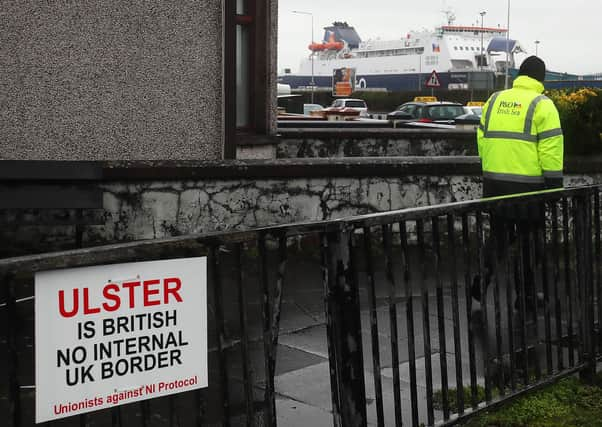UK govt: ‘We must hire talent to ensure Protocol works and Good Friday Agreement is secure’


The London-based Department for the Environment, Food, and Rural Affairs is seeking to hire four high-level civil servants, on salaries up to £71,000, to help manage and oversee the working of the Protocol.
Unionists have demanded that the Protocol (the legal mechanism which created the de facto border in the Irish Sea) must be scrapped.
Advertisement
Hide AdAdvertisement
Hide AdHowever, the job adverts describe the new Protocol-supervising roles as “permanent”.
It was put to the Northern Ireland Office that this is a sign the Protocol is here to stay.
It said: “We are seeking to agree significant changes to the Northern Ireland Protocol with the EU, not to scrap it.
“Accordingly, it is important we employ talented people to ensure it delivers on its core objectives – minimising disruption to everyday lives and safeguarding the (Belfast) Good Friday Agreement.”
MORE FROM THIS REPORTER:
Advertisement
Hide AdAdvertisement
Hide AdA message from the Editor:
Thank you for reading this story on our website. While I have your attention, I also have an important request to make of you.
Advertisement
Hide AdAdvertisement
Hide AdWith the coronavirus lockdown having a major impact on many of our advertisers — and consequently the revenue we receive — we are more reliant than ever on you taking out a digital subscription.
Subscribe to newsletter.co.uk and enjoy unlimited access to the best Northern Ireland and UK news and information online and on our app. With a digital subscription, you can read more than 5 articles, see fewer ads, enjoy faster load times, and get access to exclusive newsletters and content. Visit https://www.newsletter.co.uk/subscriptions now to sign up.
Our journalism costs money and we rely on advertising, print and digital revenues to help to support them. By supporting us, we are able to support you in providing trusted, fact-checked content for this website.